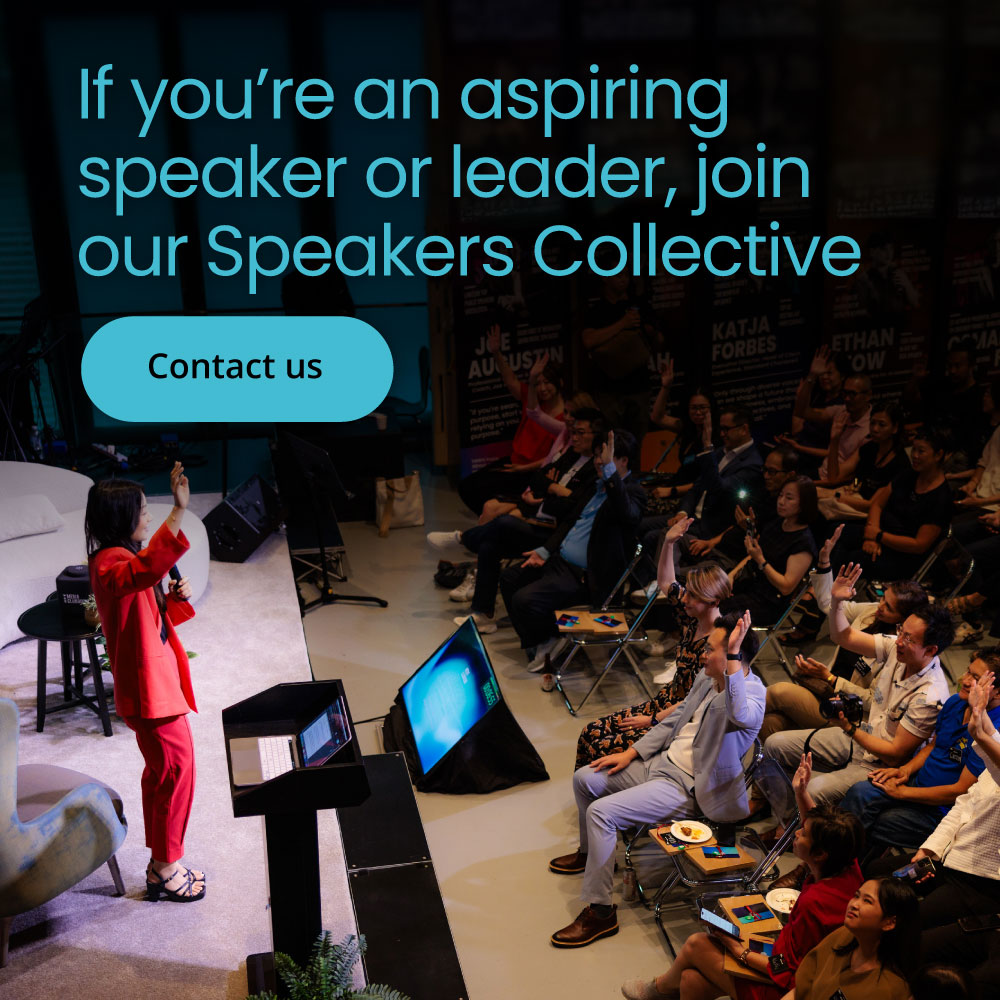Healing Through Trauma: Navigating Intergenerational Patterns and Personal Growth
6 November 2024 | Mindset & growth
Trauma is a powerful force that shapes our lives, often in ways we don't even realize. Whether experienced directly or passed down through generations, its effects are deeply embedded in the way we think, feel, and relate to others. However, as the insightful stories shared at the recent panel discussion, Bondfire Fridays, demonstrate, healing is not only possible — it is empowering. Through vulnerability, self-awareness, and intentional action, individuals can break free from cycles of trauma, rewrite their narratives, and foster personal growth.

Hard Rock Cafe, the space where Bondfire Fridays 9 is held
The Hidden Programming of Trauma
One of the most profound insights from the event came from Ethan Seow, a former musician turned cybersecurity expert. Ethan's personal journey, marked by early struggles with undiagnosed Asperger's and communication challenges, demonstrated how trauma often lurks beneath the surface, affecting individuals in subtle but significant ways. "The world of cybersecurity often goes unnoticed, just like the traumas that affect our mental health,” he remarked. “Both can run in the background of our lives until something goes wrong, prompting us to confront them. This is where empowerment begins."
Ethan’s transformation shows how confronting these hidden emotional wounds can lead to profound growth. By learning to sit with his emotions, process them, and choose his responses mindfully, Ethan has reclaimed his sense of agency. "I used to run—toward something or away from it. Now, I can sit with my emotions, process them, and choose my response," he shared. His journey highlights the importance of emotional stability and the power of reprogramming one’s internal responses.
Intergenerational Trauma and Its Unseen Impact
A key theme of the event was intergenerational trauma, the passing down of emotional wounds and behavioural patterns from parents to children. Candice, a licensed hypnotherapist, illuminated how unresolved trauma within families shapes children's worldviews, leading them to inherit unhealthy coping mechanisms. "Children mirror their parents’ reactions," she explained, noting that these inherited fears and emotional responses can unconsciously guide the way they interact with the world.
Through her work, Candice helps individuals identify and detach from these inherited behaviors, creating space for healthier emotional responses. "Trauma isn’t always about dramatic events," she explained. "It’s often about the subtle ways in which we inherit our parents’ fears and habits.” By recognizing these inherited patterns, individuals can consciously choose to break the cycle, rewriting the story for future generations.


This theme of breaking inherited patterns resonated with many in the room. Eric, a panelist, spoke candidly about how his own family dynamics influenced his behaviors. He described how trauma bonding—a concept where individuals form relationships based on shared emotional wounds—shaped his past relationships. "You did not select that partner—your trauma did," Eric shared. This realization underscores the importance of setting boundaries and becoming more aware of inherited emotional patterns to break free from unhealthy cycles.
"Trauma isn’t always about dramatic events, It’s often about the subtle ways in which we inherit our parents’ fears and habits."
Personal Narratives and the Power of Vulnerability
Healing often begins with sharing our stories, and throughout the evening, panelists and attendees alike found strength in vulnerability. Eldred Wee, a member of the audience, recounted a deeply traumatic memory from his childhood: when his mother asked him at age ten, "Are you ready to die?" This intense experience shaped much of his worldview, and when he shared it on LinkedIn, it sparked a wave of responses from others who had also faced their own traumas. "There is no ‘too small’ trauma," Eldred stated. "Every experience matters and deserves acknowledgment." His story helped others realize that sharing their pain can create a ripple effect of healing.
Eric’s journey also highlighted the transformative power of vulnerability. He described the long process of reparenting himself, confronting painful memories, and embracing the teachings of Buddhism as part of his healing process. "For the first time, seek refuge in the Buddha, the Dhamma, and the Sangha," he said, emphasizing that real change requires time, persistence, and many attempts. His words resonated deeply, showing that while healing is not a quick fix, it is a process of steady, intentional growth.
"... but at some point, we need to stop blaming them (our parents). When I decided to live for my kids, I chose to change."
Parenting and Healing Through Self-Discovery
The panel also explored how trauma influences parenting and the challenges of breaking free from generational patterns. Chrissie shared a story about her son’s struggle with social anxiety and how she encouraged him to be "an investigator"—to observe others without judgment instead of focusing on his own self-consciousness. This shift in perspective helped him navigate his anxiety with curiosity rather than fear.
The discussion also touched on the unique pressures within certain cultural contexts, particularly in Asian communities, where strict parenting and an emphasis on avoiding failure can create emotional barriers. Chrissie explained how, as a parent, she had to break free from her own expectations and allow her children to experience the world with a balance of safety and freedom. "Our parents may have made mistakes," she shared, “but at some point, we need to stop blaming them. When I decided to live for my kids, I chose to change.” This decision marked a pivotal moment in her journey, allowing her to let go of old grudges and create a new path forward for her children.
Building Resilience and Cultivating Self-Compassion
The evening’s conversation emphasized the importance of self-compassion and boundary-setting in the healing process. Ethan shared how, in his own journey, he learned to approach his father not as an authority figure, but as a person with whom he could have an authentic, equal conversation. “I want to talk to you as a person, not as my dad,” he said, illustrating how boundaries and honest communication can heal family dynamics.
Ultimately, the event underscored that healing is not about erasing the past but learning to carry our scars with dignity. By embracing vulnerability, recognizing inherited emotional patterns, and sharing our stories, individuals can break free from the cycles of trauma and cultivate healthier relationships. As one attendee reflected, “This was more than a conversation—it was an awakening.”
The journey from trauma to resilience is deeply personal, but it is also a collective experience. By supporting one another, confronting our pain, and embracing the courage to rewrite our narratives, we can heal not only ourselves but also future generations. Through storytelling, vulnerability, and intentional self-reflection, we can break the chains of intergenerational trauma, creating a future grounded in resilience, self-compassion, and empowerment.

Share this post on:
Previous post
Categories
Subscribe
© 2006-2024 Advocate Pte Ltd. All rights reserved. CRN: 200603783E



